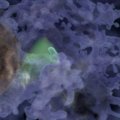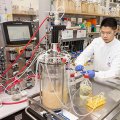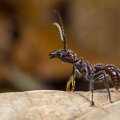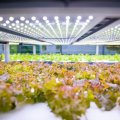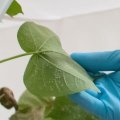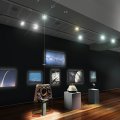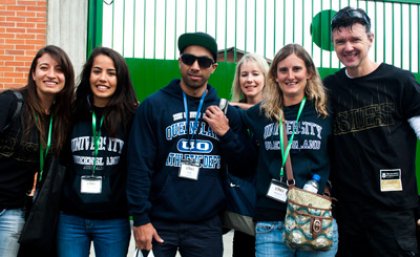
Students from The University of Queensland Business School have been working in some of the most dangerous areas of Colombia to show communities how entrepreneurship can help lead them out of poverty.
Four students interested in starting new businesses or social enterprises ventured into slums in the Colombian capital Bogota to train 32 would-be-entrepreneurs with little or no formal education.
Students Anne-Sara Budowniczy from France, Michelle Marshall from the USA, Francia Mazzo from Chile and Christopher Chapman from Australia took part in the Bogota project as part of an Entrepreneurship and New Ventures course run by Senior Lecturer Dr Lance Newey.
The project aimed to encourage entrepreneurship in Colombia, where years of armed conflict have created a major humanitarian crisis.
Michelle Marshall said that travelling to the marginalised community of Altos de Cazuca made the idea of half the world living on $2 a day much more tangible.
“Combining people's natural passion with training and skills is the key to them lifting themselves out of poverty,” she said.
Dr Newey said the project demonstrated that business schools could be an important driver of social change.
“We take leading-edge research and allow it to affect people’s lives by doing on-the-ground field trips like this,” he said.
“We trained our students to teach people with difficult personal and community circumstances how social entrepreneurship can unlock new energy within individuals and communities.
“This is about changing the course of lives in communities that have almost lost hope.”
The UQ Business School team worked with Javeriana University and local not-for-profit organisation Ahmsa, which is dedicated to alleviating poverty, creating economic opportunities and providing safe access for the students to the slum areas.
The four-day course culminated in the Colombian trainees presenting a proposal to a judging panel of local business people and academics.
Dr Newey will mentor staff at Javeriana University, which is adopting the Entrepreneurship and New Ventures course to help increase its social impact.
To view a video on the project developed by the Ahmsa organisation, please visit www.youtube.com/watch?v=A6So3SocOUE.
Media: Marketing and Communications Coordinator, Tanya Hagedorn, (0) 7 3346 3052 or t.hagedorn@business.uq.edu.au.
About UQ Business School
The University of Queensland Business School is independently ranked as one of the top business schools in Australia and amongst the leading institutions worldwide. Based in Brisbane, it brings together over 130 subject experts with over 7,500 students and offers undergraduate and postgraduate degree programs and executive education across the range of business disciplines.
UQ Business School is renowned internationally for the quality of its research and also provides contract research and consultancy services to organisations throughout the world. The teaching – research – consultancy loop is central to its success, ensuring that the School maintains its position at the forefront of academic knowledge while staying closely attuned to modern business requirements.
Fast facts
* UQ Business School was the first in Australia to meet the standards of the world’s two most influential accrediting bodies - the US-based AACSB International and Europe’s EQUIS.
* Its MBA program has been ranked number 1 in Australia and Asia Pacific by The Economist, identifying it as the leading MBA outside of Europe and North America.
* Has been ranked in the world’s top 50 universities for executive education by the Financial Times.
* The MBA course has been awarded the highest possible rating of five stars for eight years running by Australia’s most influential rating body, the GMAA.
* The School was classed as above world standard in its ix major fields of business research in the Australian government’s ERA assessment.


